Search
 News
News
UCSF Health Cancer Experts Featured at Premier Cancer Meeting
Oncology specialists from around the world came together for the 2024 American Society of Clinical Oncology (ASCO) Annual Meeting to discuss the latest developments in cancer care, research, technology and education. News
News
Precision Breast Cancer Trial Shows Improved Treatment by Tumor Subtype
Despite recent advances in the treatment of breast cancer, it remains the second leading cause of cancer death in the U.S. and worldwide. News
News
UCSF Radiation Oncologist Honored for Prostate Cancer Care and Research
American Society of Radiation Oncology celebrates Mack Roach, III, MD, for profound impact on patient treatment and leadership in cancer disparities treatment outcomes. News
News
Powerful New Mini Microscopic Will Enable Precision Cancer Surgery
UCSF’s Mekhail Anwar wins an up to $15 million award from ARPA-H to develop a next-generation miniature scanner powerful enough to detect individual cancer cells during surgery. News
News
Panel Issues First Guidelines to Prevent Anal Cancer in People With HIV
Results from a national study led by UC San Francisco informed the first guidelines at the federal level in the United States to detect and treat anal cancer precursor lesions in people with HIV to reduce the risk of developing anal cancer. News
News
UCSF Health Reaches 15,000 Robotic Surgeries
UCSF Health has the busiest robotic surgery program in the UC health system and is the leading academic medical institution for robotic surgeries in the western U.S. News
News
Targeted Therapy, Treatment Disparity Featured at Cancer Meeting
Leading cancer researchers from UC San Francisco presented talks about advances in targeted therapy, cancer genomics, eliminating treatment disparities and other cancer research topics at this year’s annual meeting of the American Association for Cancer Research (AACR) conference... News
News
Can a New Drug Candidate Cure Pancreatic Cancer?
UC San Francisco researchers have designed a candidate drug that could help make pancreatic cancer, which is almost always fatal, a treatable, perhaps even curable, condition. News
News
Physician Survey Shows Lack of Understanding of the FDA’s Approval Process
Many physicians are unfamiliar with how the Food and Drug Administration’s (FDA) regulates new drugs and medical devices, and they may be under the impression that the data supporting these approvals are more rigorous than they are, according to a national survey of physicians conducted by researchers at UC San Francisco (UCSF).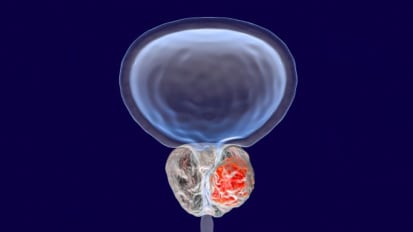 News
News
Radioligand Therapy Plus Pembrolizumab May Benefit Patients with Advanced Prostate Cancer
Immune checkpoint inhibitors have demonstrated limited efficacy in treating prostate cancer. Efforts to improve outcomes with combination therapies have mostly failed to demonstrate improvements compared to other types of cancer. News
News
Study Finds Significant Chemical Exposures in Women With Cancer
In a sign that exposure to certain endocrine-disrupting chemicals may be playing a role in cancers of the breast, ovary, skin and uterus, researchers have found that people who developed those cancers have significantly higher levels of these chemicals in their bodies.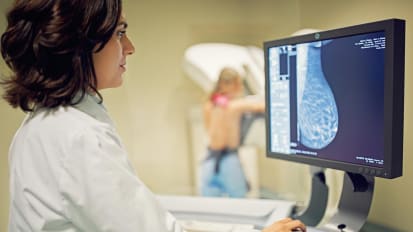 News
News
Inclusion of New Risk Factors Can Improve Prediction of Invasive Breast Cancer
UCSF researchers update Breast Cancer Surveillance Consortium model to account for BMI and other familial risk factors.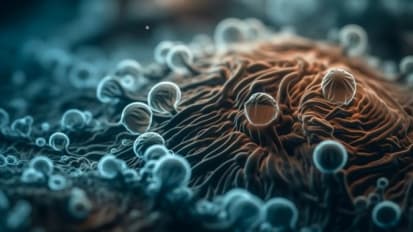 Video
Video
New Keys to Cancer Care: How 2023 Findings Impact Treatment Decisions
These four collaborative talks from UCSF and John Muir Health specialists shine a light on recent study results that should inform treatment planning for patients with a variety of GI, breast, lung and blood cancers. News
News
UCSF Cancer Researcher Thomas Martin Receives $4.6 million CIRM Grant
UC San Francisco’s Thomas G. Martin, MD, a leading expert in blood cancers, has received a grant of nearly $4.6 million from the California Institute of Regenerative Medicine (CIRM) to produce a CAR T cell therapy for multiple myeloma, the second most common malignancy among blood cancers. News
News
Can Gene Expression Predict if a Brain Tumor Is Likely to Grow Back?
Screening tumors using this new approach could change the course of treatment for nearly 1 in 3 people with meningioma, the most common form of brain tumor diagnosed in 42,000 Americans each year.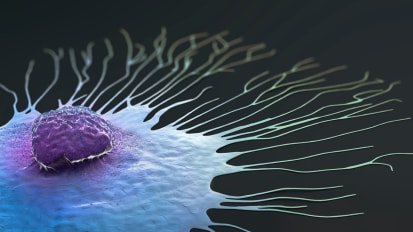 News
News
Improving Prediction of Advanced Breast Cancer Among Women of Different Races and Ethnicities
While regular screenings may decrease the chance of diagnosis of advanced breast cancer in some women and lead to a 20% reduction in breast cancer mortality, other women will be diagnosed with advanced breast cancer despite screening at regular intervals.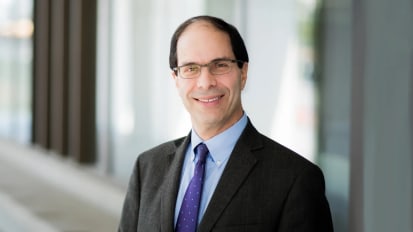 News
News
UCSF Health’s Eric Small, MD, Elected ASCO President for 2025-2026 Term
The American Society of Clinical Oncology (ASCO) has elected Eric J. Small, MD, FASCO, to serve as its president for the term beginning in June 2025.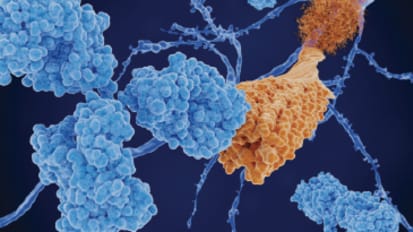 Document
Document
Cancer Immunotherapy Toxicity Evaluation (CITE) Program
UCSF Health’s new Cancer Immunotherapy Toxicity Evaluation (CITE) Program is a valuable resource for both patient care and provider consults.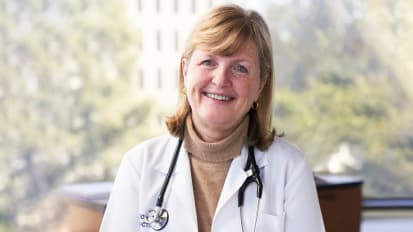 News
News
A Novel Approach Towards a Vaccine for Relapsing Acute Myeloid Leukemia: Q&A with Dr. Karin Gaensler
There is a major clinical unmet need for effective and safe therapies to increase progression-free and overall survival in older individuals with leukemia whose prognosis is grim. News
News
UCSF Health Cancer Services Earns National Accreditation from the Commission on Cancer of the American College of Surgeons
The UCSF cancer program has been continuously accredited by the CoC since 1933, demonstrating its commitment to the best outcomes possible for its cancer patients. News
News
Scientists Discover a Deadly Brain Cancer’s Hidden Weakness
The difficult-to-treat brain cancer glioblastoma steals a person’s mental faculties as it spreads, yet the tumor’s insidious ability to infiltrate distant networks in the brain could also prove its undoing. News
News
UCSF Surgical Oncologists Providing New Treatment Options for Patients with Metastatic Gastrointestinal Cancers
UCSF Health’s surgical oncology team is a Bay Area leader in an innovative chemotherapy infusion pump used to treat patients with widely metastatic colorectal and bile duct cancers that have spread to the liver and are no longer considered operable. News
News
Can Lymph Nodes Boost the Success of Cancer Immunotherapy?
New data from a clinical trial show therapies may activate lymph nodes to produce tumor-tackling T cells.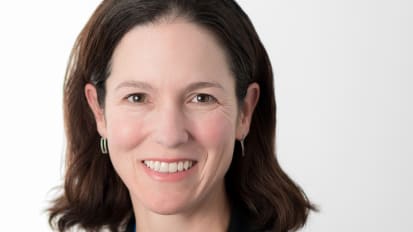 News
News
First-line Pembrolizumab Plus Chemotherapy May Benefit Patients with Advanced Biliary Tract Cancers
The addition of pembrolizumab (Keytruda) to gemcitabine and cisplatin improved overall survival in patients with untreated metastatic or unresectable biliary tract cancer, according to results from the phase III KEYNOTE-966 clinical trial.

